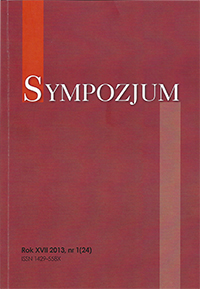Antropologiczno-aksjologiczny wymiar encykliki Pacem in terris
Anthropologic and axiological dimensions of Pacem in terris
Author(s): Ryszard PodgórskiSubject(s): Christian Theology and Religion, Theology and Religion
Published by: Wyższe Seminarium Misyjne Księży Sercanów
Keywords: peace;
Summary/Abstract: The author of the article undertakes analysis of the Encyclic Pacem in terris from two perspectives: anthropologic and axiological. The starting point of the Document is thesis that peace has been always an important common good. Presently, because of the nuclear weapons, different states posses, peace becomes the highest common good. Eventual nuclear war would be able to annihilate the whole population of the world and destroy our culture. Peace, however, is not a given state of things; it is a dynamic process. It has to be gained and build. The most important way of building peace is creation of the society in which human rights are respected. There are two reasons for such a respect for human rights: anthropologic – every man is a human person, and flowing from the Christian faith – human persons are equals in front of God, because they all are God’s creations, redeemed through death and resurrection of Jesus Christ, Son of God. There is, however, a reciprocity of rights and duties. Therefore those, “who claim their own lights, yet altogether forget or neglect to carry out their respective duties, are people who build with one hand and destroy with other” (PT, 30).
Journal: Sympozjum
- Issue Year: 24/2013
- Issue No: 1
- Page Range: 61-71
- Page Count: 11
- Language: English, Polish

